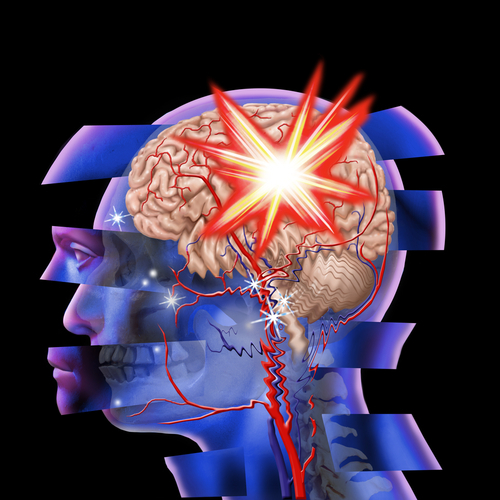Brain injury in teenagers may up Alzheimer's risk: Lancet study
IANS Apr 12, 2018
Sustaining a traumatic brain injury (TBT) in the 20s may increase the risk of developing dementia including Alzheimer's in the 50s by 60 per cent, a review of nearly three million patients has revealed.

The findings, published in journal The Lancet Psychiatry, showed that men with traumatic brain injury histories had slightly higher rate of developing dementia (30 per cent vs. 19 per cent) than women. "Severe TBI is particularly frequent in young people, and it is concerning that the risk of dementia is particular high in relatively young persons who suffer TBI," said Jakob Christensen, Associate Professor at Aarhus University Hospital in Denmark. The overall risk of dementia in individuals with a history of TBI was 24 per cent higher than those without a history of TBI, after accounting for other risk factors for the disease.
A single TBI characterised as "severe" increased the risk by 35 per cent while a single "mild" TBI or concussion increased the risk by 17 per cent, revealed the research. "What surprised us was that even a single mild TBI was associated with a significantly higher risk of dementia," added Jesse Fann, Professor at the University of Washington School of Medicine in Seattle, US.
The risk of dementia increased 33 per cent higher for two or three TBIs, 61 per cent higher for four TBIs, and 183 per cent higher for five or more TBIs. Dementia affects 47 million people worldwide, a number expected to double in the next 20 years. Every year, more than 50 million people worldwide experience a TBI, which occurs when an external force disrupts the brain's normal function. Leading causes include falls, motor vehicle accidents, and assaults.
For the study, the team examined 2.8 million people, and followed-up for 36 years. While not every person who sustains a severe TBI will develop dementia, the findings might such people to change their behaviours toward potential risk factors for dementia, such as limiting alcohol and tobacco use, engaging in regular exercise, preventing obesity and treating hypertension, diabetes and depression, the researchers said. "If someone has a traumatic brain injury or concussion, they need to strictly follow the protocols to leave the game and get the proper assessment and treatment that is necessary," Fann said.
-
Exclusive Write-ups & Webinars by KOLs
-
Daily Quiz by specialty
-
Paid Market Research Surveys
-
Case discussions, News & Journals' summaries